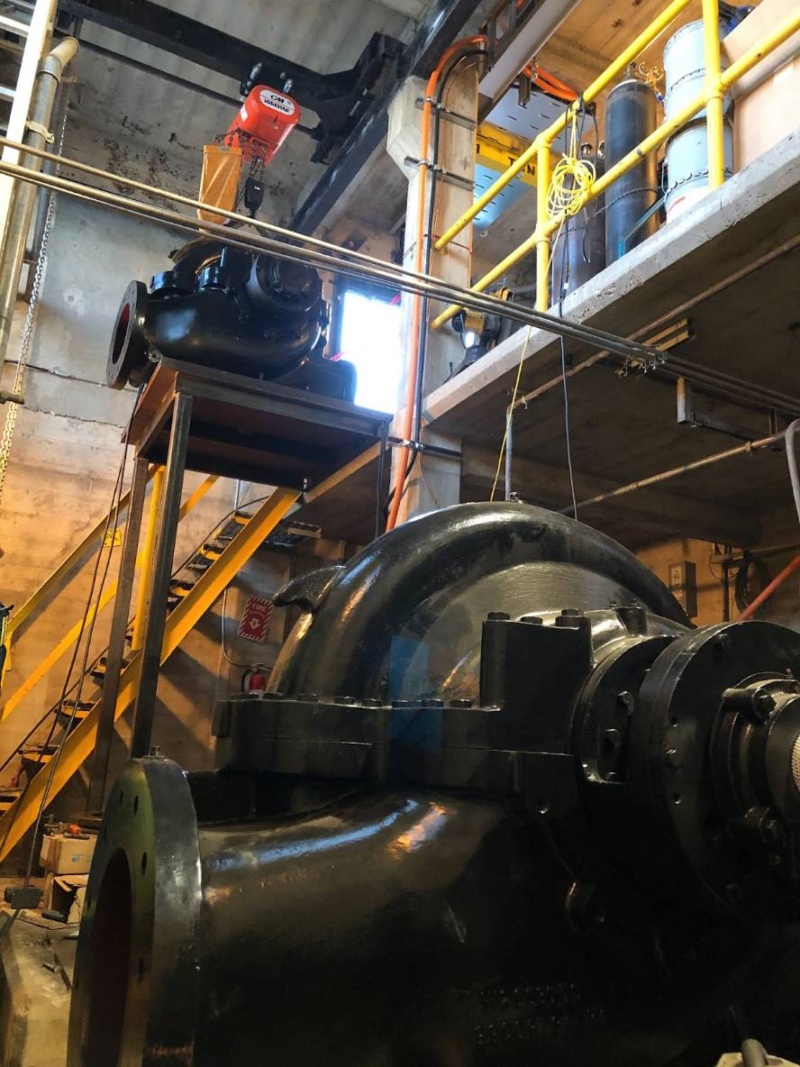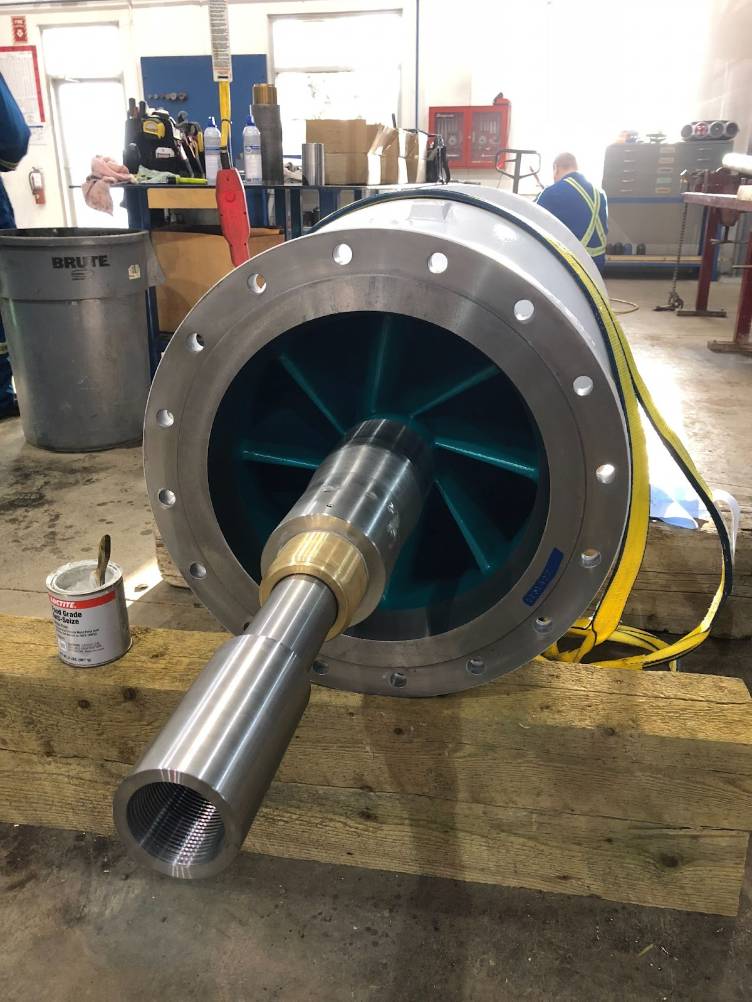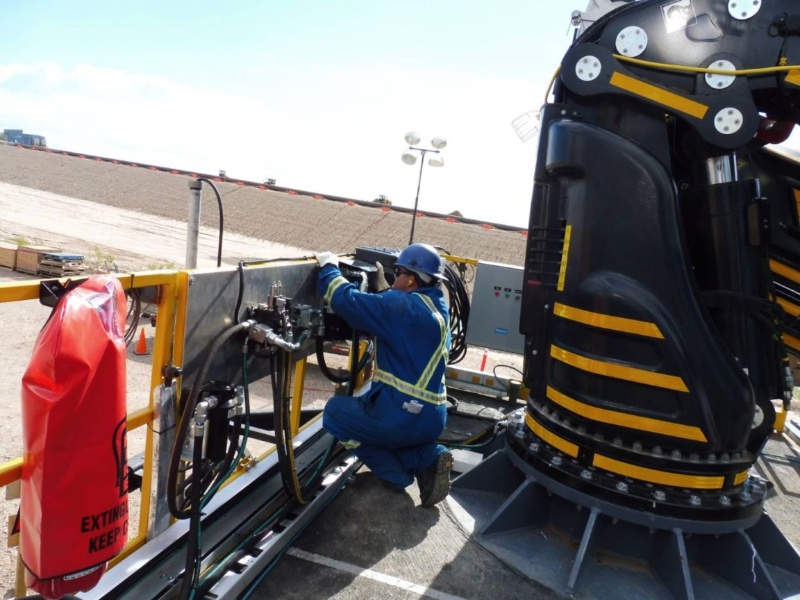When it comes to protecting the longevity of your pump, we can’t say enough about the importance of routine maintenance. As the saying goes, “prevention is better than cure” and we certainly agree when it comes to your industrial pumps.
With a solid preventative maintenance plan in place, you can ensure that your industrial pump continues to function optimally and avoid unexpected downtime and costly repairs.
As a starting point, your authorized supplier should ensure your unit has been properly installed and commissioned. Then, when it comes to planning a maintenance schedule, you should always refer to your OEM recommendations for your specific pump and ensure you stick to the regularly recommended maintenance intervals. A pump should, at the very least, be serviced on a yearly basis.
The Importance of Regular Preventative Pump Maintenance

Not maintaining your pumps with regularly scheduled preventative maintenance can decrease the life of your pump by 50% or more. Skipping your maintenance tasks could lead to premature wear of some of the components within the pump and lead to increased energy and repair costs as well as downtime which can lead to significant disruptions to your business.
Extend the Lifespan of the Pump
A well-maintained pump can have a long life span and, at Chamco, we’ve seen well-maintained pumps lasting 30 years or more.
Improve Pump Efficiency
A pump that is not maintained will experience reduced performance which can have costly long-term implications for your operations. By keeping your pump well-maintained, you’ll ensure your pump can function at its optimal capacity.
Reduce Pump Downtime & Pump Failure
Pump failure and downtime can cause significant disruptions to your business. With proper maintenance, you can ensure your operations continue to run smoothly.
Reduce Repair Costs
Pump repairs can be costly and easily avoided with regular preventive maintenance to inspect the different components of the pump and address issues before they require costly repairs.
Important Pump Maintenance Procedures & Tips

There are a number of things you should regularly check on your pump. Here are some of the most important routine inspections you should be carrying out.
1. Check & Secure the Mounting Bolts
Excessive vibration and pump leakage can affect your mounting bolts. You should check that your mounting bolts are tight, secure, and have not corroded.
Checking your mounting bolts should form part of your annual maintenance schedule but may need to be done more often depending on your installation and pump.
2. Check for Fluid Leaks
Unexpected fluid leaks are not only messy, but they can result in reduced performance and a loss of pump output. Your pump is not designed to leak, so, if there’s a leakage, it should definitely be investigated.
Pumps can suffer leakages from mechanical seals, stuffing boxes and flange gaskets, while pump motors can also experience oil leakages, so it’s a good idea to check these as part of your monthly routine maintenance.
3. Check and Adjust Packing
If your pump is a packed pump, there should be some flow of process fluid coming through the packing, and there should be some fluid flow through the packing. Typically, manufacturers recommend 1 drip per 10 seconds; enough that you should see fluid coming through the packing, but it should not be excessive amounts of fluid. Use caution, as overtightening the packing can damage the pump shaft.
Packing also needs to be changed periodically. While inspecting the packing, verify that the pump shaft is not showing signs of wear from over-tightening or the packing has hardened from lack of fluid lubrication.
4. Check for Proper Oil Level, Oil Leaks & Grease
Insufficient or too much lubrication can cause bearing failure of your pump. Checking for oil leaks from the drive should be done as part of the annual inspection of your pump.
You should also check the gasket condition, and if there is a leak, you may need to replace the gasket or mechanical seal.
It’s also important to maintain the correct oil level and use the correct grease and oil as specified in your operating manual.
5. Check the Pump Pressure and Flow
It’s important to regularly check your discharge gauge to ensure your pump is operating with adequate pressure. The correct pressure will vary depending on the operating parameters of your pump, so it’s best to check your operating manual.
You should review your pump performance and compare it to the factory pump curve that would have been supplied with the pump. Typically, if the pressure is running too high or low, it’s good to have it professionally diagnosed to determine whether it needs to be repaired. Pressure and flow are relative to each other so they should be checked together.
6. Inspect the Temperature
The pump bearings keep the shaft axial end movement and lateral deflection within the proper limits for the impeller and shaft seal. It’s possible that those parts can overheat, so you need to ensure your bearing temperature remains consistent. A lack of maintenance can result in premature wearing of your bearings.
The ideal temperature depends on your pump and the bearings and you should follow the OEM recommendations.
Don’t forget to check the temperature of the motor as part of your routine maintenance. This work should be done at least monthly.
7. Inspect & Clean Motor Vents
Dust and debris build-up can affect your pump’s operation, so you should regularly check the motor for cleanliness. You’ll need to shut the motor down and de-energize it first.
To remove the dirt, you can blow the dust off with a high-volume, low-pressure air blast. If the motor is very dirty, it may need to be sent to a motor shop to be professionally cleaned and dried.
Cleaning motor vents should form part of your preventative maintenance routine or part of a planned overhaul of your motor.
8. Inspect Condition of Pump Casing
The pump casing houses the pump impeller and rotating assemblies as well as retains pressure, so it’s important to check it regularly for damage.
The conditions of your application may cause the casing to rust, crack, or discolour. Cracks can cause leakage and even contamination of the fluids being pumped.
You should check the condition of your pump casing as part of your monthly maintenance routine and inspect for signs of wear and tear or fatigue. If your pump casing is consistently suffering damage due to the environment in which it’s operating, consider getting a pump manufactured with different materials more suited to withstand those conditions.
Extend the Life of Your Pump with Chamco’s Preventative Pump Maintenance Program

Performing proper maintenance on your industrial pump requires a lot of skill and technical expertise, so it’s a good idea to hire a professional to assist you with ensuring your pumps are maintained properly on a regular pump maintenance schedule. You’ll want to ensure that the company you hire has properly trained and experienced technicians who have the expertise required to perform the required maintenance services. You will also want to keep records of the service so be sure the maintenance company has an adequate service report that records the work completed along with the findings from the service.
At Chamco, we are committed to helping our customers ensure their pumps have a long and optimally-functioning life. We offer 24/7 pump service, either in the field or at one of our six service centres located across Western Canada.
Our annual maintenance inspections include a comprehensive examination of your pumps. We will:
- Inspect the packaging, mechanical seals, shaft material, and shaft driver
- Check the oil levels and check for leakage
- Check the bearings and grease and change the bearings if necessary
- Clean the pump and motor
- Run a test of the pump, including temperature, vibration, pressure and flow
- Provide a written service report for your records
Our highly knowledgeable team of technicians is happy to help our customers avoid unexpected and unforeseen problems, and extend the life of their equipment.
Contact us today to get started with our industry-leading preventative pump maintenance programs to protect and extend the lifespan of your pump.